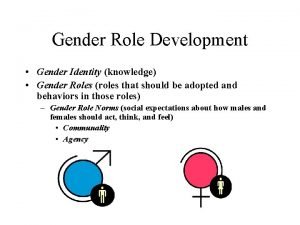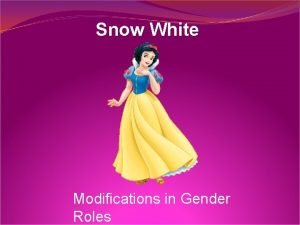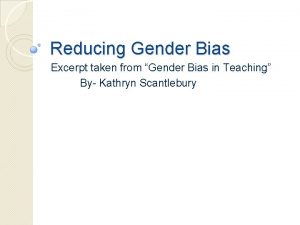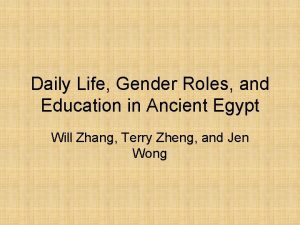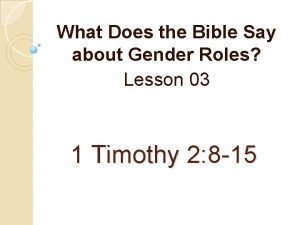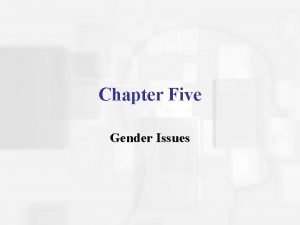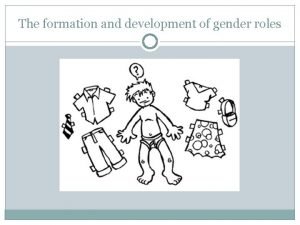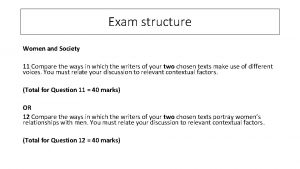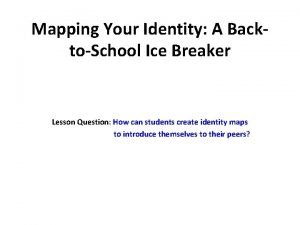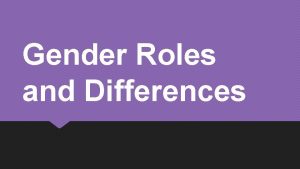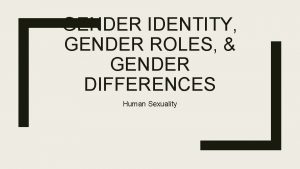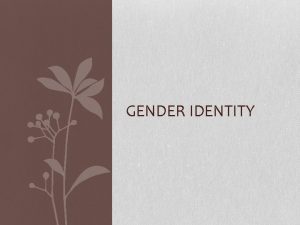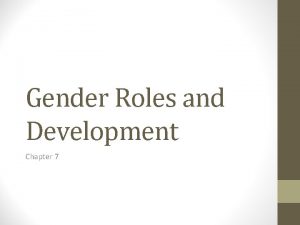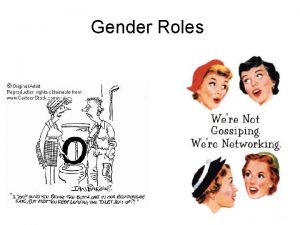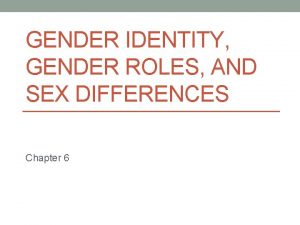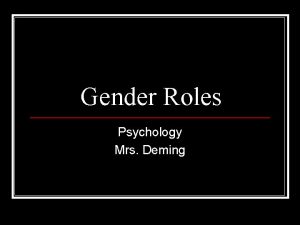Gender Role Development Gender Identity knowledge Gender Roles


















- Slides: 18

Gender Role Development • Gender Identity (knowledge) • Gender Roles (roles that should be adopted and behaviors in those roles) – Gender Role Norms (social expectations about how males and females should act, think, and feel) • Communality • Agency

Gender Role Development • Gender Stereotypes (inaccurate, unsupported generalizations) • Gender Typing (process by which we acquire appropriate behaviors, thoughts, and feelings) • Socialization (teaching)

Theories of Gender Role Development • Biosocial Theory (Money and Ehrhardt) – Biological Processes – Social labeling and differential treatment

Theories of Gender Role Development • Psychoanalytic Theory (Freud) – Oedipus Complex – Electra Complex – Identification

Theories of Gender Role Development • Social Learning Theory – Observational Learning – Differential Reinforcement

Theories of Gender Role Development • Cognitive Theories – Kohlberg’s Cognitive Developmental Theory • Stage 1 – Basic gender identity is established by age 2 or 3, when children can recognize and label themselves as males or females

Theories of Gender Role Development • Cognitive Theories – Kohlberg’s Cognitive Developmental Theory • Stage 2 – By age 4, children achieve gender stability (gender remains stable over time; boys become men, girls become women) • Stage 3 – Between ages 5 and 7, gender consistency is achieved (gender is stable across all situations; dress, cross sex activities, etc)

Theories of Gender Role Development • Cognitive Theories – Gender Schema Theory • Children develop gender schema, about males and females that influence the kinds of information they will attend to and remember

Theories of Gender Role Development • Cognitive Theories – Gender Schema Theory • Do this by: – Developing an in-group, out-group schema to classify appropriate gender objects, behaviors and roles – Developing an own sex schema, by acquiring more detailed info about their sex role

Developing Social Cognition • • Theory of Mind – Best taught by parents sharing their emotions Role-Taking Skills – The ability to adopt another person’s perspective and their thoughts and feelings in relation to our own – Theory of mind in action – Requires outgrowing egocentrism

Developing Social Cognition • • Begins with Mutually responsive orientation – Associated with best family situation for development of social cognition – Children and caregivers are sensitive to and responsive to one another’s needs – Children want to comply to rules and learn self-regulation w/o external control Empathy – Vicarious experience of another's feelings – Promotes morality and pro-social behavior

Developing Morality • Morality – Ability to distinquish between right and wrong – Three components: • Affective – Feelings which surround right and wrong actions (moral affect) • Cognitive – How we conceptualize right and wrong and make decisions • Behavioral – How we behave when faced with moral dilemmas

Developing Morality • • Learn to distinguish between – Moral Rules • Standards that focus on the welfare and basic rights of others – Social Conventional Rules • Standards determined by social consensus about what is appropriate in particular social settings (rules of social etiquette) Around age 11 start to try to explain why other people do what they do based on descriptions of internal characteristics

Developing Morality • Taught through discipline (Hoffman, 1970) – Love withdrawal • Withholding attention, affection, or approval after a child misbehaves – Power assertion • Using power to administer spankings, taking away privileges, and other punishment – Induction • Explaining why behavior is wrong and how it affects other people

Kohlberg’s Theory of Moral Reasoning Development • • • Preconventional – Based on consequences Conventional – Based on approval and acceptance of others – Internalizes societies rules Postconventional – Based on internalized personal moral code – Acquired through formal operational thought Invarient sequence Cognitive growth and social experiences most important influences

Eisenberg’s Levels of Prosocial Reasoning • • Stage 1: Hedonistic Orientation (up to age 7) – Self needs first Stage 2: Needs Oriented Orientation (7 – 11) – Consider needs of others w/o guilt if help not given

Eisenberg’s Levels of Prosocial Reasoning • • • Stage 3: Approval-focused Orientation (11 – 14) – Will help if rewarded with praise and approval Stage 4: Empathetic Orientation (12 and over) – Considers needs of others and feels guilt if not given Stage 5: Internalized (16 and over) – Helping behavior based on strong, internalized beliefs and values

Developing Social Cognition • Dodge’s Social Information Processing Model (pg 395) – Encoding of cues – Interpreting of cues – Clarification of goals – Response search – Response decision – Behavioral enactment
 Gender-role development
Gender-role development Snow white and the seven genders
Snow white and the seven genders Is there any bias in gender roles based on the excerpt
Is there any bias in gender roles based on the excerpt Ancient gender roles
Ancient gender roles Why are gender roles important
Why are gender roles important Gender inequality quiz
Gender inequality quiz Gender representation in casablanca
Gender representation in casablanca What does the bible say about gender roles
What does the bible say about gender roles Gender issue in school
Gender issue in school Gender roles theory
Gender roles theory Indus river valley gender roles
Indus river valley gender roles Qin dynasty gender roles
Qin dynasty gender roles John money
John money A thousand splendid suns gender roles quotes
A thousand splendid suns gender roles quotes Personal identity map
Personal identity map Sexual orientation gender identity
Sexual orientation gender identity Gender identity
Gender identity Gender identity tagalog
Gender identity tagalog Strategic gender needs and practical gender needs
Strategic gender needs and practical gender needs
